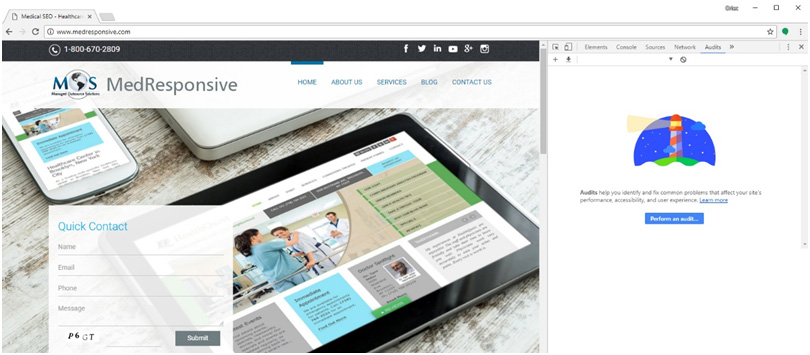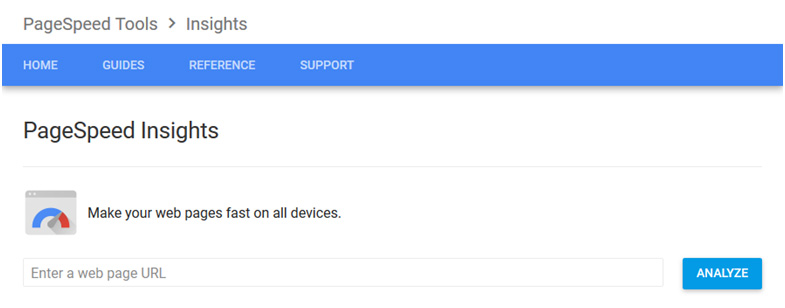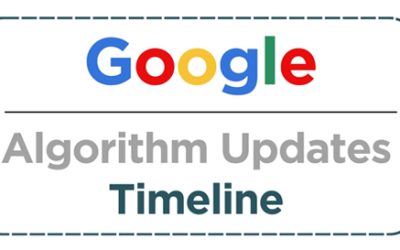Healthcare website design has a new challenge to deal with in 2018. There is a speed update coming up for mobile searches. Mobile page speed will become a ranking factor in mobile search this year. Google’s webmaster blog explains that till now speed was only a ranking factor for desktop searches. But the “Speed Update”, as Google calls it, will make page speed a factor to determine mobile search rankings too.
How to Get Your Healthcare Website Ready for the Speed Update
Google has announced that the update will only go live in July 2018. So you have enough time to prepare for it, and the search engine giant recommends preparing for it with resources such as:
- The PageSpeed report that has been recently updated
- The Chrome User Experience Report which is a public dataset containing important user experience metrics for the popular web destinations, and
- Lighthouse that can also help make improvements to your page speed
Google Reassures that Page Content Quality Will Also Be Valued
- How much of an impact would the update make on results?
Google says not much. It emphasized in its webmasters blog that the update is likely to influence only a small segment of queries, and the impact will only be felt by websites that provide the slowest user experience.
- And will other ranking signals be overlooked?
Google also stresses that user intent is still a very important search signal; so if your page has relevant and quality content, you could see it ranking highly though the page itself loads slowly.
But that’s not to say you can be slack on page speed. Improve page speed, but make sure your content is relevant, high quality and covers all possible angles of the particular topic or keywords applicable to the treatment or diagnostic services you provide. Google also stresses that the Speed Update will ensure all pages are applied the same standard despite the differences in technology that’s used for building the page. Not to worry then, but time to get started.
Understanding Google-suggested Performance Analysis Tools
Google is encouraging “broad” thinking by webmasters in understanding the dynamics of how web performance affects the experience of the user. There are various user experience metrics to consider here. So let’s look at the tools suggested by Google’s webmasters blog for evaluating page performance and improving it:
- The Chrome User Experience Report can give you important user experience metrics, based on the real-world conditions experienced by Chrome users. It is a dataset of user metrics for some of the popular websites. This information is gathered from users who allow their browsing history to be synced and don’t have a Sync passphrase set up, and have enabled usage statistic reporting. The data comes up through PageSpeed Insights and the Public Google BigQuery dataset.
- PageSpeed Insights gives you an indication of the performance of a page on the Chrome UX Report. Just enter your URL and you’ll get real world insight on how your website performs. PageSpeed Insights can then give you suggestions to improve your site performance across multiple devices.
- Lighthouse is an automated and open-source tool that helps audit web page performance. The tool can be run against any web page and it audits it, checking out factors such as its accessibility, performance, the use of progressive web apps, etc. All you need to do is enter a URL, and Lighthouse gives you a report on the various performance aspects of the page. The failed metrics are the areas that need to be improved. Each of the audits comes with a reference doc that explains the importance of an audit and the means to get it fixed.
As Google has reassured, there is no need to panic since the update will not devalue relevant and quality content nor will it affect a large segment of queries. But to stay clear of the competition and maintain the visibility of your healthcare practice or diagnostic service, it’s great to start optimizing your page with the tools suggested. Of course, experienced medical SEO companies offering healthcare website design can help you here.







